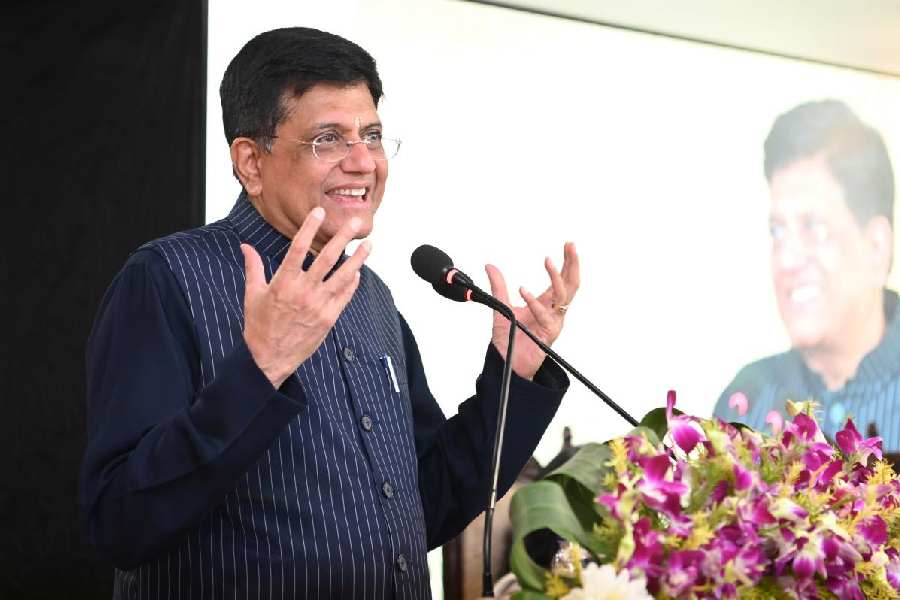The Centre has asked the food regulator to ramp up testing of imported teas to check if they are meeting the domestic food and safety standards.
Union commerce minister Piyush Goyal has directed the Food Safety & Standard Authority of India (FSSAI) to increase the frequency of tests nationwide and beef up testing facilities, if required, to examine the quality of teas that are being sold in the country.
While tests for MRL (maximum residue level) — the highest level of pesticide residue legally allowed in food items — will be conducted mainly on imported teas, checks on domestic production will also be done.
The instruction from the commerce ministry came at a meeting with the stakeholders of north Indian tea producers under the aegis of the Tea Board, where minister Goyal interacted with the industry.
Teas imported to India stood at 29.84 million kilos in 2022, according to Tea Board figures. Import stood at 14.75 million kg during January-August of 2023, the latest data available showed. Neighbouring Nepal is the biggest exporter to India, accounting for about 55 per cent of total import till August.
“It was decided that there is a need to increase the level of testing. We will follow up with FSSAI for that. Concerns were raised about the quality of imported teas, so that specially is to be tested,” Amandeep Singh Bhatia, chairman of the Tea Board, said after Goyal’s meeting in Calcutta.
Bhatia, who is the additional secretary in the ministry of commerce, further informed that testing on domestic teas would also be stepped up.
A steady rise of import from Nepal has been the bane of the Darjeeling tea industry from 2017 onwards, driving down prices and depressing demand in the domestic market. A section has been complaining that substandard Nepal teas have been flooding the market.
A Darjeeling planter, who has been advocating compliance, said FSSAI, Customs and the Tea Board have been found wanting in doing tests on imported teas.
“All the consignment of tea sought to be imported to India must be analysed for all parameters laid down under various FSSAI regulations as mandated under section 14(1) of the Food Safety & Standard (import) Regulations 2017. But it is hardly conducted,” Sanjay Choudhury, owner of an estate, said. He alleged the Tea Board has not done enough sample tests on imported teas either.
This is not the first attempt by the Modi government to crack down on substandard tea import. Four circulars were issued by the Board under Tea Marketing Control Order, 2003 Tea (distribution & export) Control Order, 2005 on November 11,2021 for protection of Darjeeling teas.
Dust auction
The Centre has agreed to planters’ suggestion to put the entire north Indian production of dust teas to auction from April 1 for trial basis.
“It was decided that 100 per cent of dust teas will be sold via auction for three months. The industry and the government will thereafter see the results and decide on the next course of action,” Atul Asthana, managing director of Goodricke Group and chairman of the Indian Tea Association, said.
While 50 per cent of all teas are required to be sold in auction, the rule is hardly followed. Dust constitutes about 20-25 per cent of north Indian tea production which stood at 801 million kg during January- September 2023.
Mohit Agarwal, director of Asian Tea Company, welcomed the move by the government. “It (dust auction) will lead to better price discovery and improve quality of teas,” Agarwal added.










